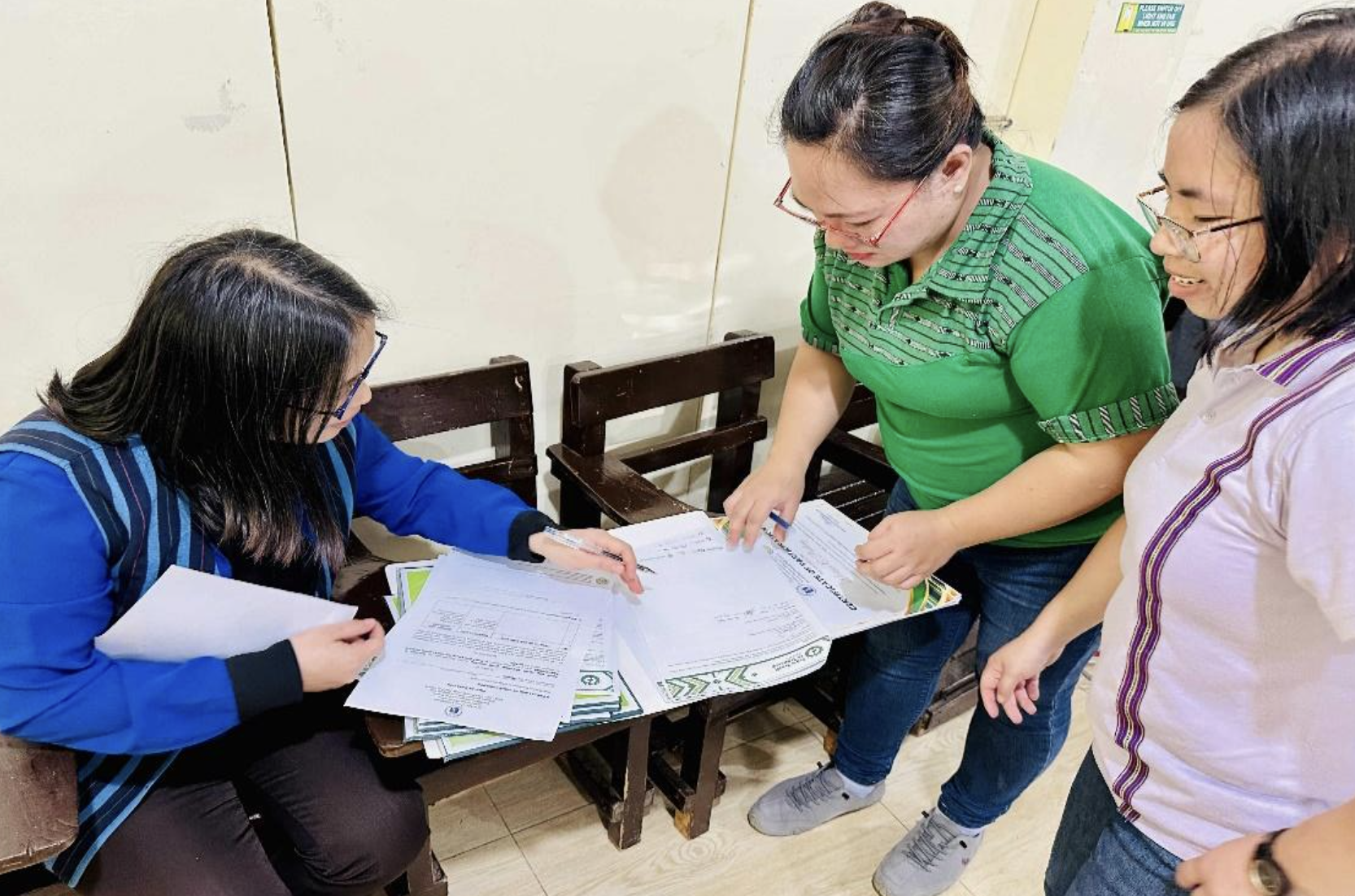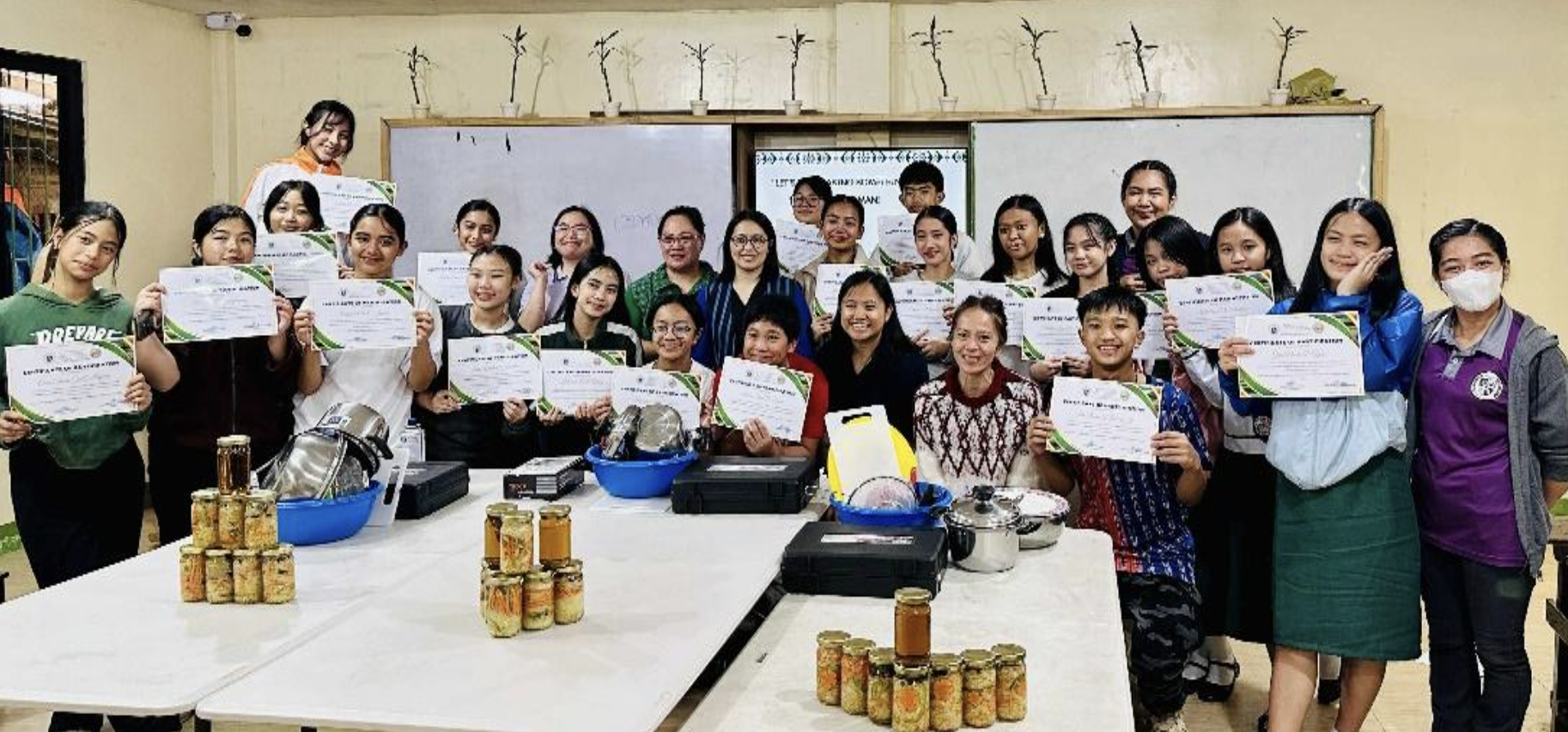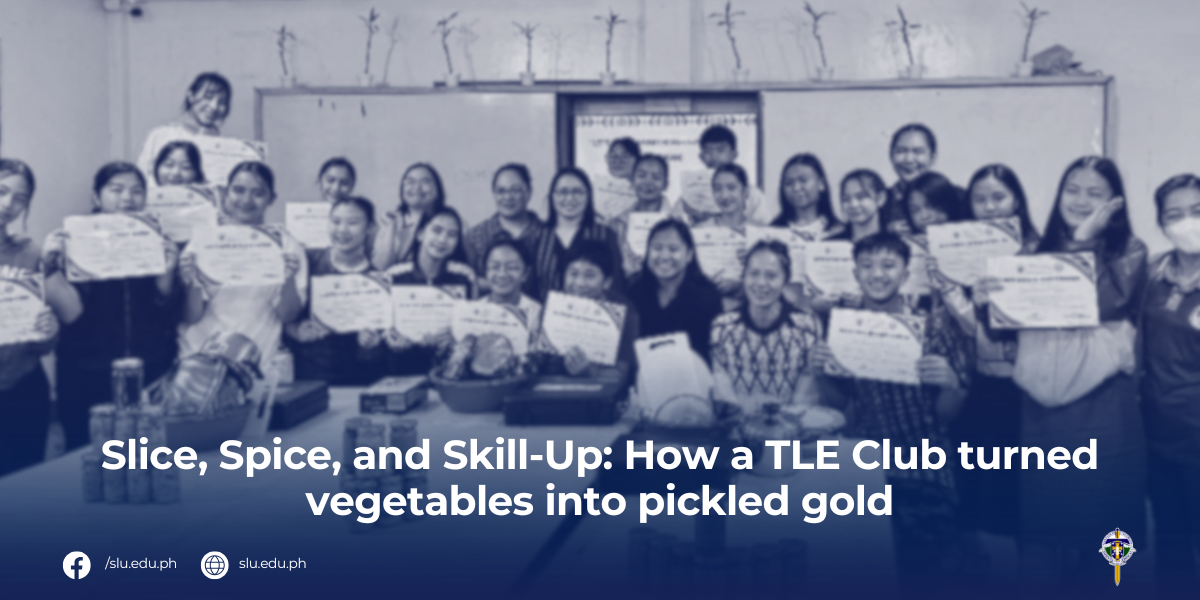If you think cabbage’s destiny is the compost heap, think again.
On 8 August 2025, twenty eager members of the Technology and Livelihood Education (TLE) Club at Fort Del Pilar National High School swapped textbooks for cutting boards in a hands-on demo titled “Slice, Spice, and Skill-Up: Upcycling Vegetables, Empowering Learners.” Organized by the Saint Louis University–Gent University Flemish Interuniversity Council – University Development Cooperation (VLIR-UOS) Food Upcycling Project to address SDGs 12 (Sustainable Production and Consumption) and 2 (Ending Hunger & Achieving Food Security), the activity transformed surplus cabbage—one of the region’s most wasted crops—into nutritious, market-ready achara, demonstrating how simple preservation techniques can add value, extend shelf life, and reduce post-harvest losses.
Pickling: the low-tech superpower against food waste
Food waste is a global challenge with local consequences: lost income for farmers, reduced food availability, and unnecessary pressure on resources. The pickling demo made this abstract problem tangible. Students learned the science behind preservation—how acidity, salt concentration, and proper sanitation inhibit spoilage organisms—and practiced step-by-step techniques for safe pickling: selecting high-quality produce, trimming and slicing to uniform size, preparing brines, packing jars, and labeling for storage and sale. Emphasis on hygiene, correct vinegar ratio, and safe handling turned a kitchen exercise into a mini food-safety clinic.
Skills, creativity, and teamwork on the menu
More than a recipe, the event was a practical skills session. The 20 participants (grades 7–12) were organized into three teams to encourage collaboration and peer learning. Each group rotated through stations—knife skills and safe cutting, flavor development and seasoning; and packing, presentation, and sanitation—so students built competence across the whole process. Outputs were judged on taste, aesthetics, and cleanliness, with feedback given as constructive coaching rather than competition. The format reinforced culinary technique, sensory evaluation, product design, and basic entrepreneurship skills (packaging and labeling), equipping learners with applied competencies they can reuse and teach others.
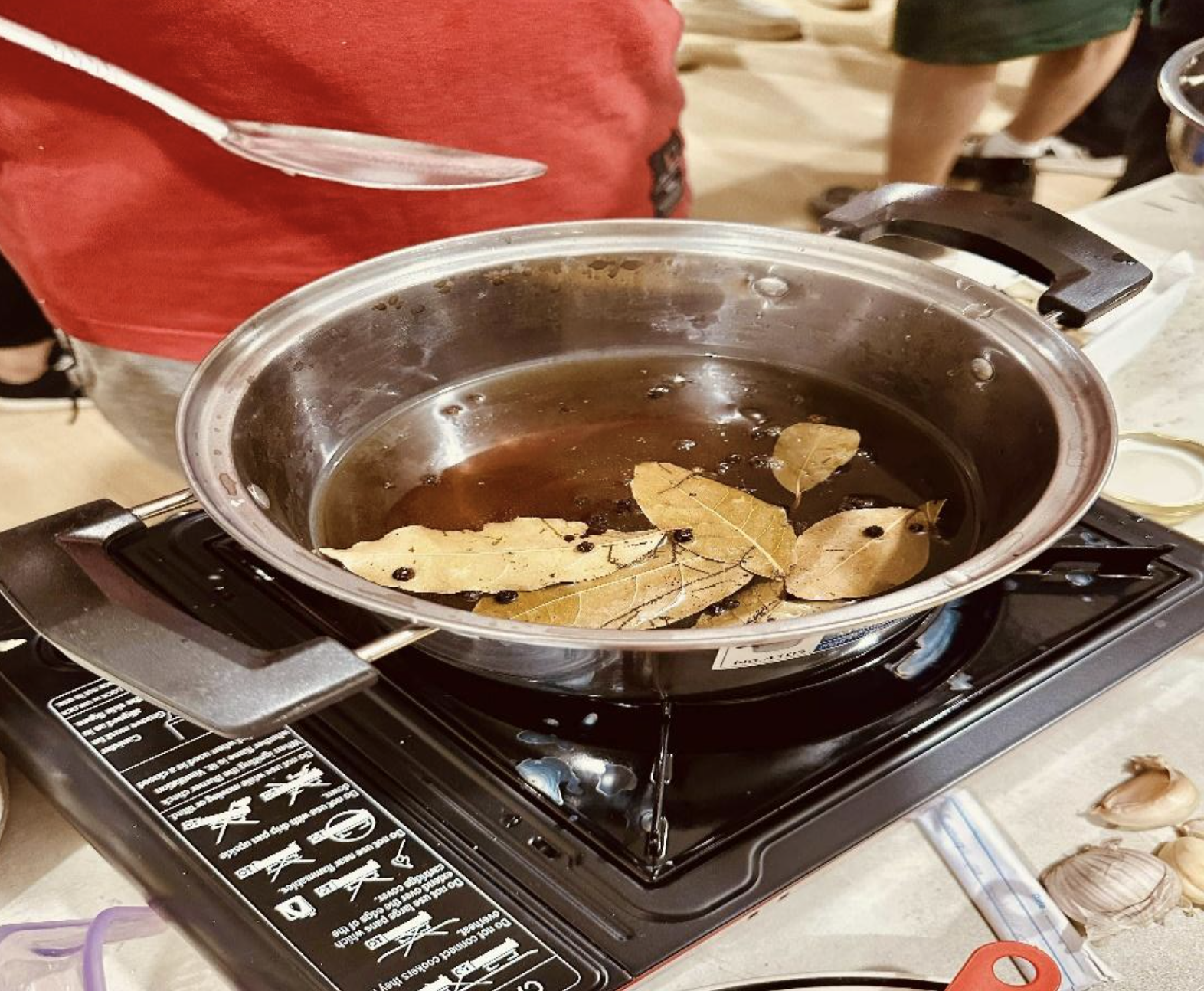

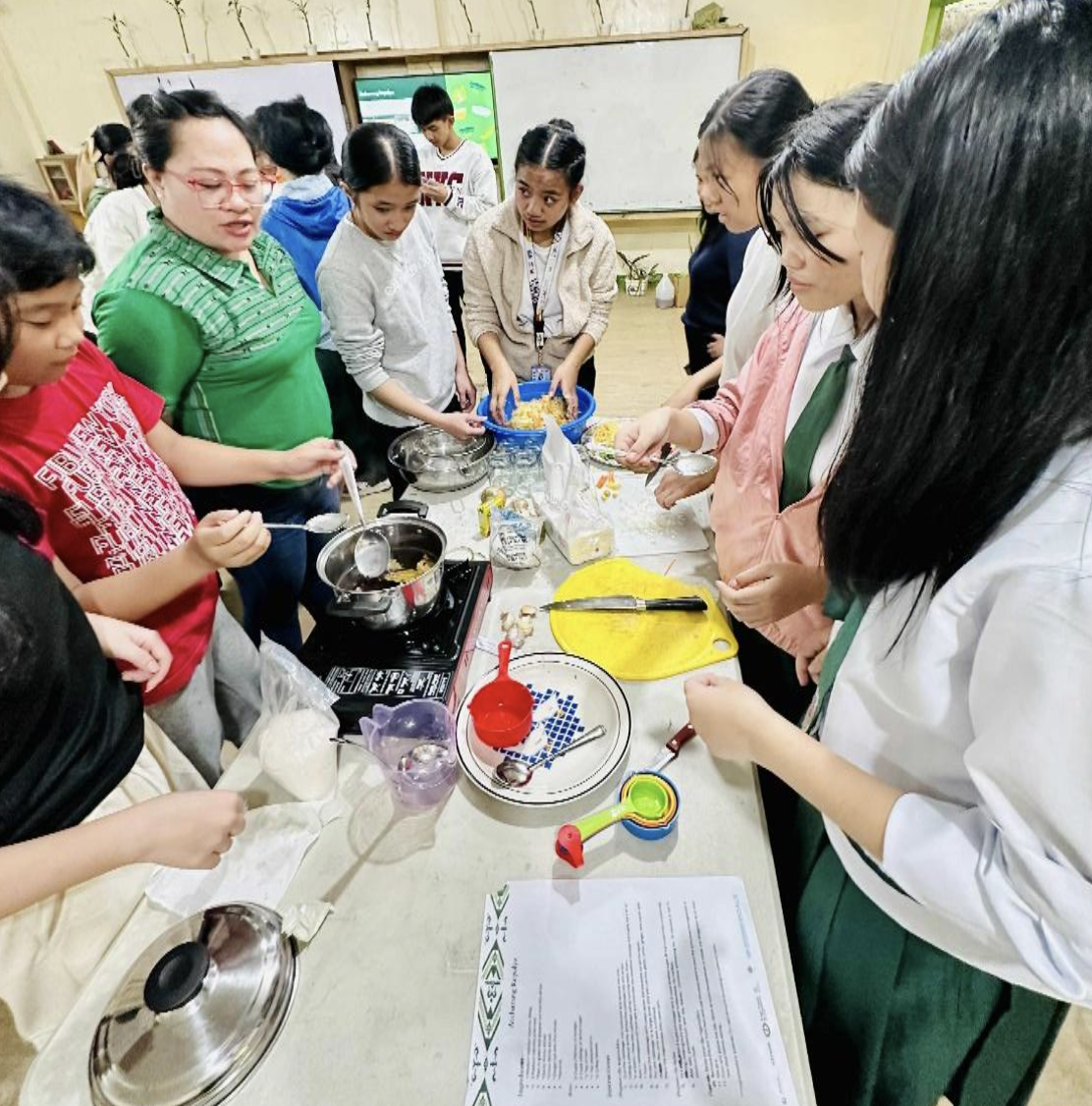

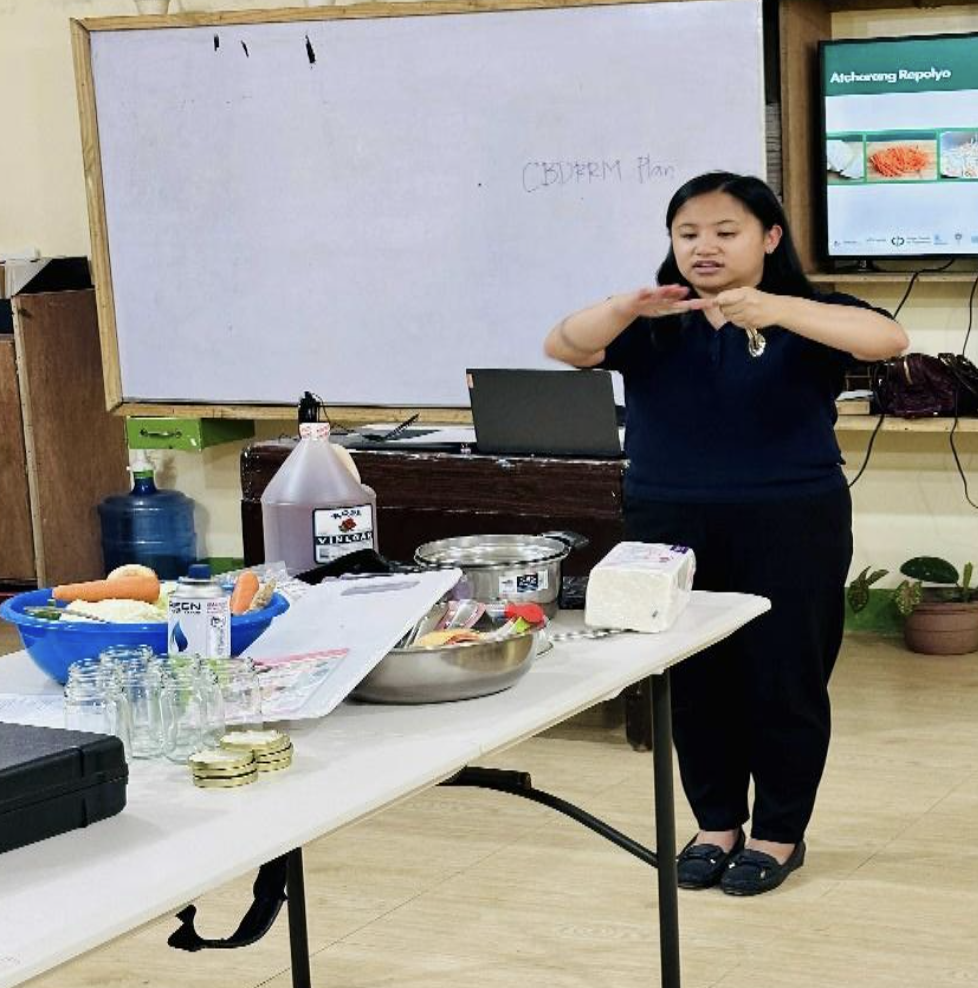
Bridging curriculum gaps and building school capacity
Many students at Fort Del Pilar have limited exposure to hands-on cookery due to curricular limits and constrained facilities. The Food Upcycling Project addressed this gap in two concrete ways: first, by delivering an intensive practical session that modelled foundational TLE competencies (knife handling, food safety, recipe scaling), and second, by donating kitchen tools and utensils to the school so practice can continue. These tangible inputs increase the likelihood that skills become routine components of school activities, club projects, and community outreach.
Community impact and alignment with development goals
The demo aligns with sustainable development priorities: by upcycling surplus produce into nutritious preserved foods, the activity supports SDG 2 (Zero Hunger) through food availability and SDG 12 (Responsible Consumption and Production) by reducing food loss. It also models community partnership—linking university expertise, local schools, and agricultural stakeholders—to create replicable practices that can be transferred to other schools and barangays.
Voices from the event
Resource speakers Professors Mary Luz C. Fiangaan and Jennet E. Razo both from the SLU-SONAHBS Faculty, assisted by Mary-ann T. Rusiana and Clarrize Jocel B. Saingan, combined technical instruction with motivational coaching. Professor Fiangaan underscored the urgency of reducing food loss in the Cordillera region, while Professor Razo encouraged practice beyond the workshop: “Sana isabuhay ninyo ang natutunan ninyo ngayon” — may you live what you learned and help the team in positioning the country in the map of food upcycling.
School Head Ms. Salome Fangkingan, TLE Club adviser Ms. Gayle Inso, Mr. Emmanuel Estrella, Ms. Nancy Bugtong, and coordinator Ms. Mary Angeli Fiangaan expressed gratitude for the training and the donated equipment, noting the potential for student-led microenterprises or canteen offerings using preserved products. (Article by: Jennet E. Razo and Mary Luz C. Fiangaan | Photos by SLU–Gent University VLIR-UOS Food Upcycling Project)
